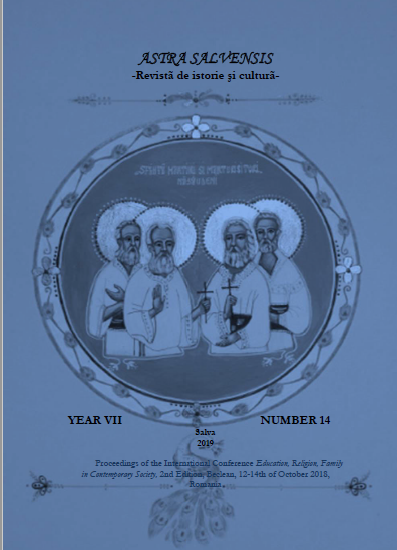The Institution of Marriage - Perceptions and Tendencies
The Institution of Marriage - Perceptions and Tendencies
Author(s): Mihaela Sandu, Gheorghe NadoleanuSubject(s): Theology and Religion, Religion and science
Published by: Asociaţiunea Transilvană pentru Literatura Română şi Cultura Poporului Român - ASTRA
Keywords: marriage; family; perceptions; tendencies;
Summary/Abstract: For a long time, the question of knowing of whether or not you should marry, was and has remained a continuous subject of discussion. The advantages and disadvantages of marriage, the need to have a legitimate wife, and to provide you with descendants, the worries and efforts to support your partner, to raise and educate children, to face - sometimes - their illness and even their death , were the inexhaustible themes of debates, sometimes serious, sometimes ironic, but always resumed. However, the study of the family was imposed as a necessity only in the modern age, although the preoccupations in this regard are very old. The issue of organizing family life and its functional consequences, the evolution of male and female roles, appears in the works of ancient and renaissance thinkers, and in a more immediate period, to utopian socialists. The preoccupation for family success, anticipating what later, in one form or another, would be called conjugal counseling and therapy, has appeared since antiquity. Changing the structure and the way it is accomplished the functions of the family directly related to the socio-historical changes of the contemporary age led to a diversification of the sociological and psychosocial concepts regarding the family and, implicitly, the ways of approaching it. The meaning and the direction of the contemporary society development also employs this primary cell, imparting to it a certain structure and fulfillment of family functions and roles, a certain way of life.Concluding, we can say that from a socio-historical perspective, marriage was set up for moral, social, economic, and religious purposes, and not for the affirmation of the couple as an affective, sexual and emotional entity. And the fact that the perception of marriage has always been updated according to how it was understood and applied at its beginnings was an impediment to its growing awareness of value. That is why contemporary society has proposed alternatives to marriage, which are nothing more than personal, free choices, and not duties based on tradition and constraint.
Journal: Astra Salvensis - revista de istorie si cultura
- Issue Year: VII/2019
- Issue No: 14
- Page Range: 221-236
- Page Count: 16
- Language: English

